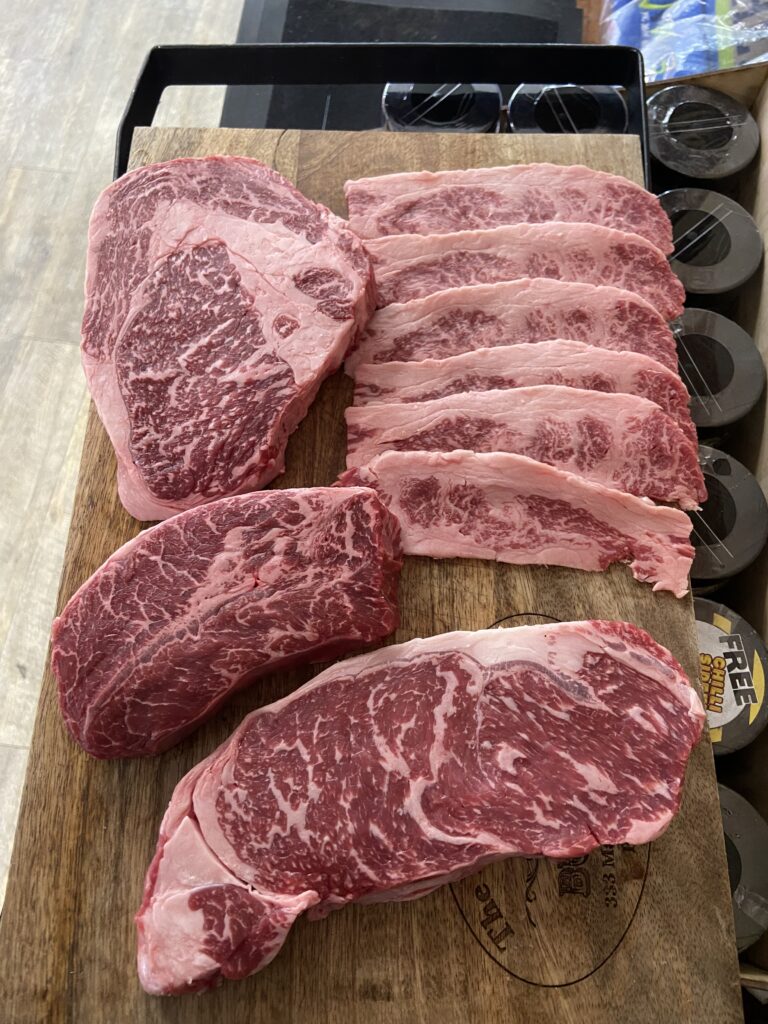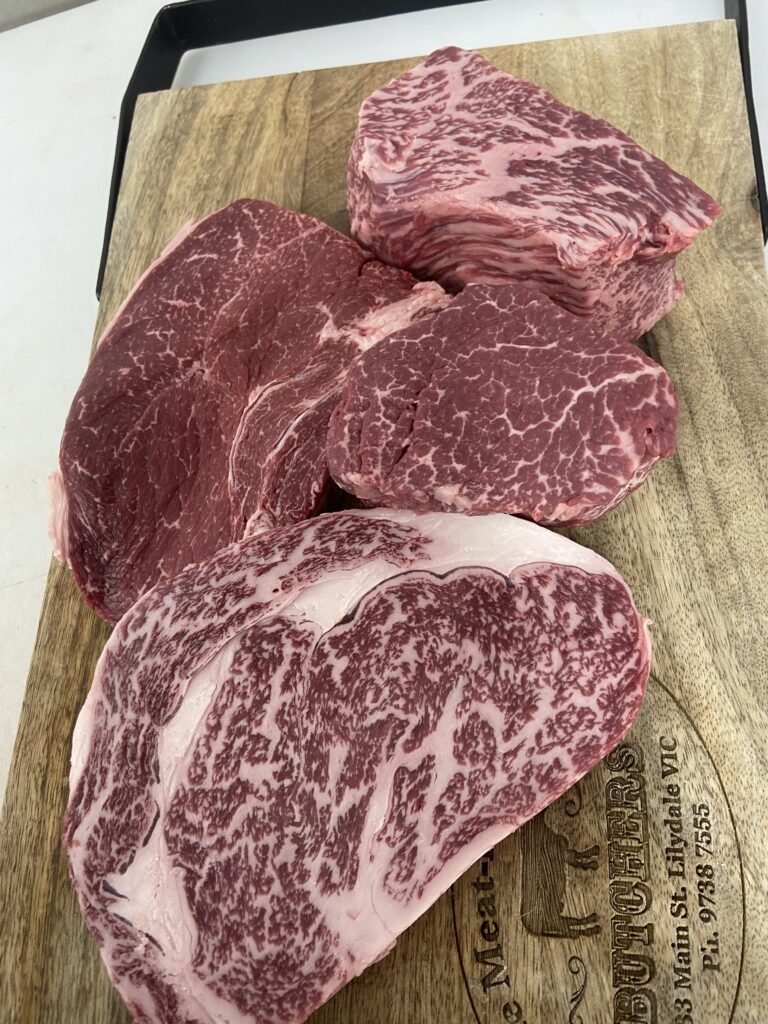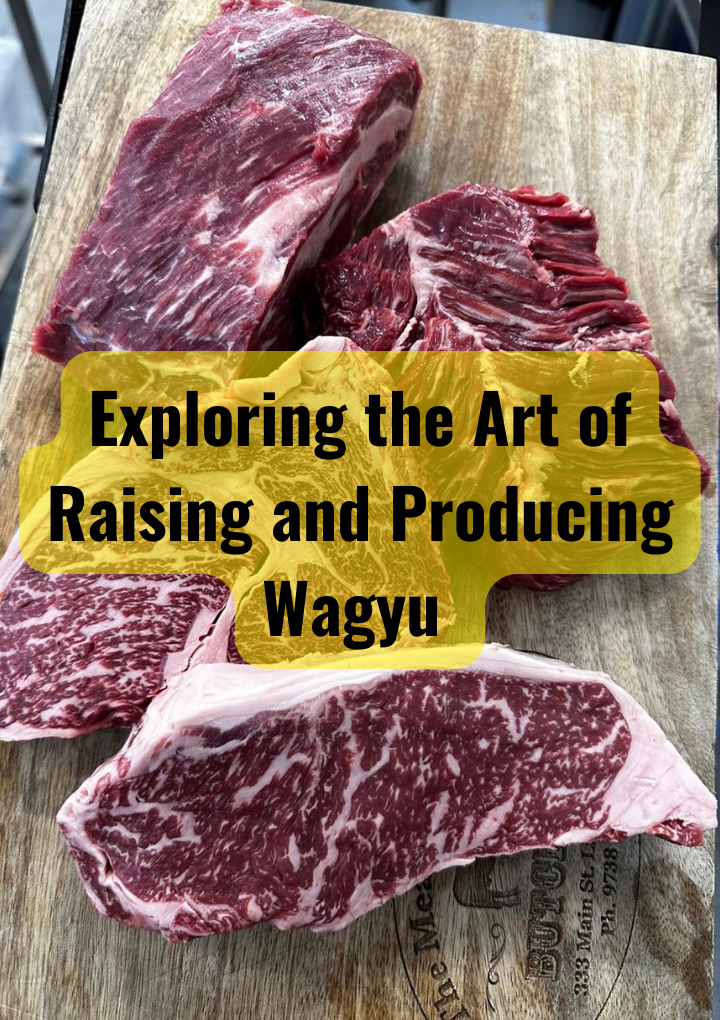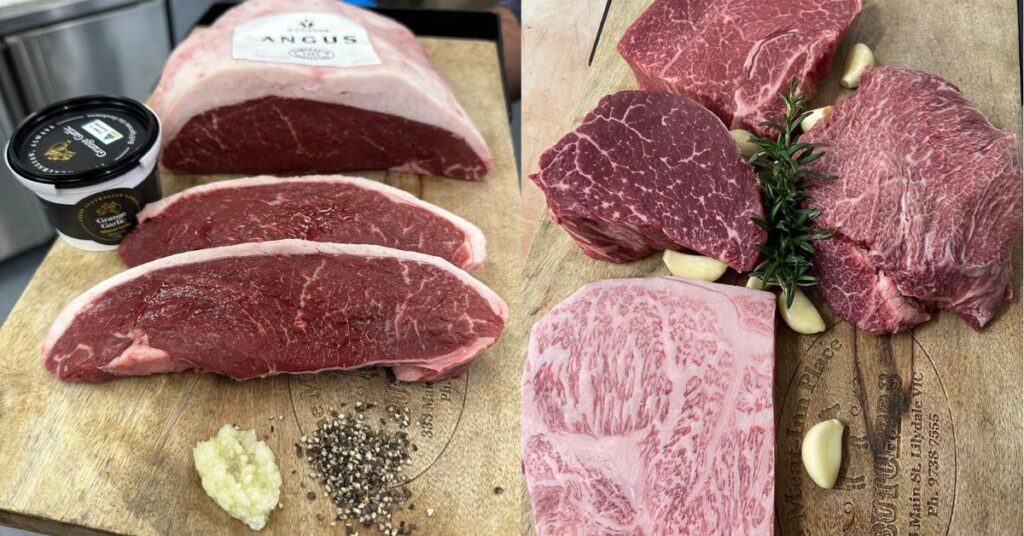What Makes Wagyu Beef So Special

Get your tastebuds ready for an explosion of flavours from Wagyu beef. With its origins in Japan, Wagyu beef is prized and known for its unbeatable taste and marbling that’s like no other. With its exquisite marbling equally distributed across the meat, it’s hard not to get succulent steaks from it. It has an umami taste that you won’t get from other kinds of beef, which will take your tastebuds on a wild culinary ride. Let’s uncover the reasons why Wagyu makes a lasting impression.
Where did Wagyu beef come from?
I’m sure you’ve heard about Wagyu beef more than once in your life. Have you ever wondered what it is and where it comes from? Wagyu beef comes from an ancient breed of cattle from Japan and dates back as far as 35,000 years ago. Japanese cattle, specifically Wagyu, were originally bred to satisfy Japan’s need for sturdy, strong, and reliable cattle for farming. The term ‘Wagyu’ comes from ‘Wa’, which means Japan, and ‘Gyu’, which means cow. Wagyu cattle are divided into four classifications: Japanese Short, Japanese Polled, Japanese Black, and Japanese Brown. Any beef that comes from any of these cattle classifications falls under the category of Wagyu beef.
Is it considered Wagyu if it’s not from Japan?
Because Wagyu is originally from Japan, there’s a misconception that only beef that comes from the Wagyu cattle in Japan can be called Wagyu. Wagyu doesn’t have to be born and raised on Japanese soil. Foreign countries like Australia, USA, and Uruguay have imported Japanese cattle and have crossbred it with the local breeds, producing Australian Wagyu, American Wagyu, etc.
How are Wagyu cows fed?
Compared to regular cattle breeding and raising, Wagyu cattle receive extra care from their caretakers and are checked multiple times a day. Wagyu cattle are fed rice and straw, which give the cows a rich and nutritious diet that encourages the development of marbling in the meat. Along with rice and straw, they are fed with up to 10 kg of a protein-rich feed that enriches their muscle fibres, producing exquisite and high-quality beef.
Does consuming Wagyu have dietary risks?
Wagyu, while known for its excellent flavour and melt-in-your-mouth texture, is also known to be good for you. because of its high amounts of omega-6 and omega-9 fatty acids and oleic acid, which are good for the heart. However, there are some things that you should remember when eating Wagyu. Portion is one of the things to be mindful of. Even if they say that Wagyu is good for you if you consume over the healthy portion size, you’re placing yourself at risk because Wagyu also has a high amount of saturated fat and can cause inflammation in your body.
What are the special qualities of Wagyu?

It’s no surprise when you hear people say that Wagyu is considered the ‘Rolls Royce of beef’ because it truly is! Wagyu beef has marbling and intricate webbings of fat evenly distributed across the muscle fibres, which makes it one of the most succulent kinds of meat you can find in the market. What are the qualities that make Wagyu beef so special? Let’s find out!
Aroma or smell
According to Wagyu experts, when Wagyu beef is cooked up to 80°C, it produces a smell that is unique to Wagyu. They said that the smell can only come from purebred Wagyu cattle and come from lactones that are fragrantly rich in umami aroma.
Melt-in-your-mouth texture
Wagyu beef has a higher concentration of oleic acid compared to other types of beef. With its low melting point and intricate marbling, Wagyu beef easily melts in your mouth and explodes with umami flavour because of the amino acids present in the meat. Combine the two, and you get sublime, deep, and complex flavours from the Wagyu.
Looks or apppearance
We know what sets Wagyu beef apart from regular cattle: the marbling. The intramuscular fat layers found in between the muscles of the Wagyu beef give it its unique look and flavour. The marbling across the meat doesn’t appear magically. There’s an art to raising and producing Wagyu beef that makes it so special.
Umami flavour
Umami is a Japanese term that refers to the ‘essence of deliciousness’ in food like seaweed, mushrooms, soybean paste, cheese, and more. Umami is the perfect word to describe the flavours of Wagyu beef. Because Wagyu beef is also high in amino acids and omega acids, it produces a taste that’s very rich, and meaty and lingers on your palate with every bite.
Wagyu FAQ
Yes, Kobe is classified under Wagyu because Kobe beef comes from Wagyu cattle that are raised and produced in the capital city of Hyogo, Kobe.
Yes. Unfortunately, there are a lot of sellers who package their beef as Wagyu, even if it’s not real Wagyu. This is why buying from reputable suppliers and local butchers like The Meat Inn Place is important for your Wagyu needs.
Yes, Japanese Wagyu can be easily found in your marts, local and online butchers.
A5 Japanese Wagyu is the highest and most premium grade that can be awarded to a piece of Wagyu beef.


